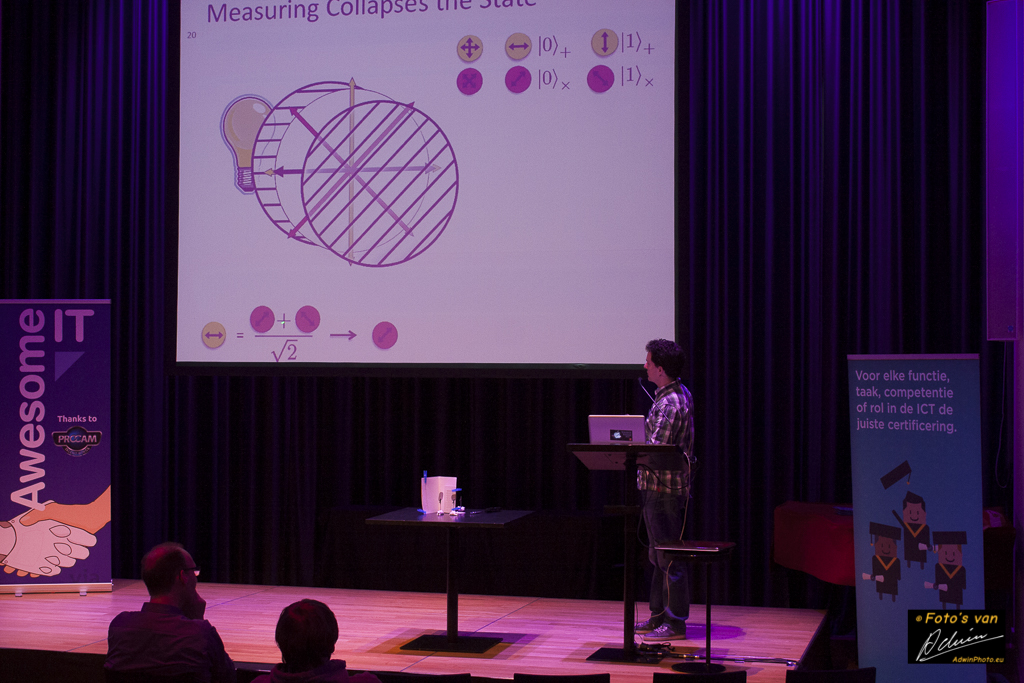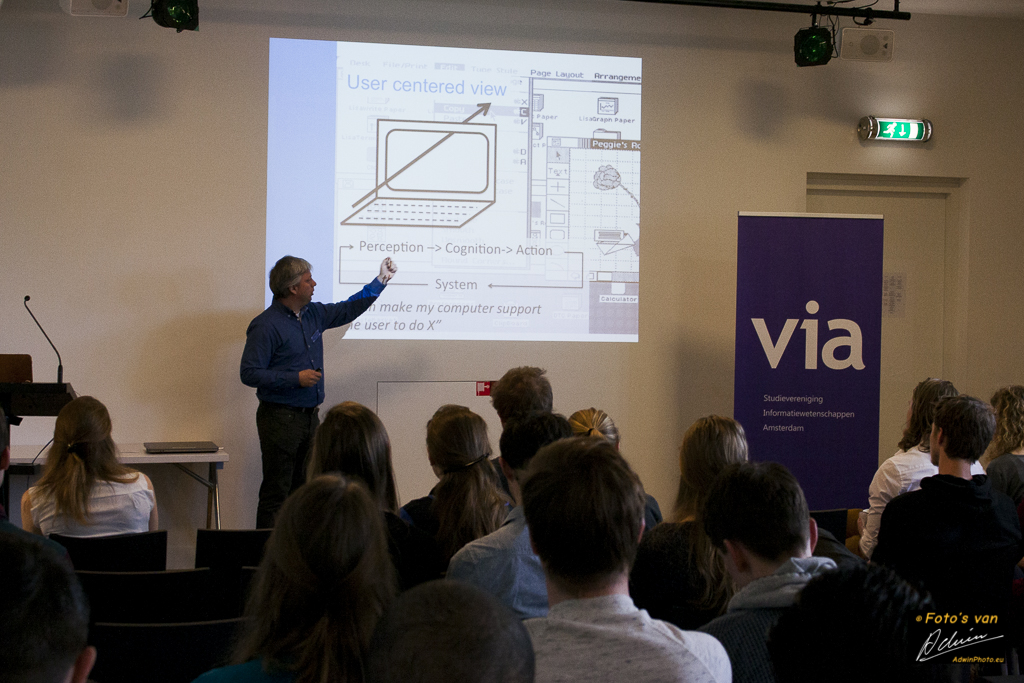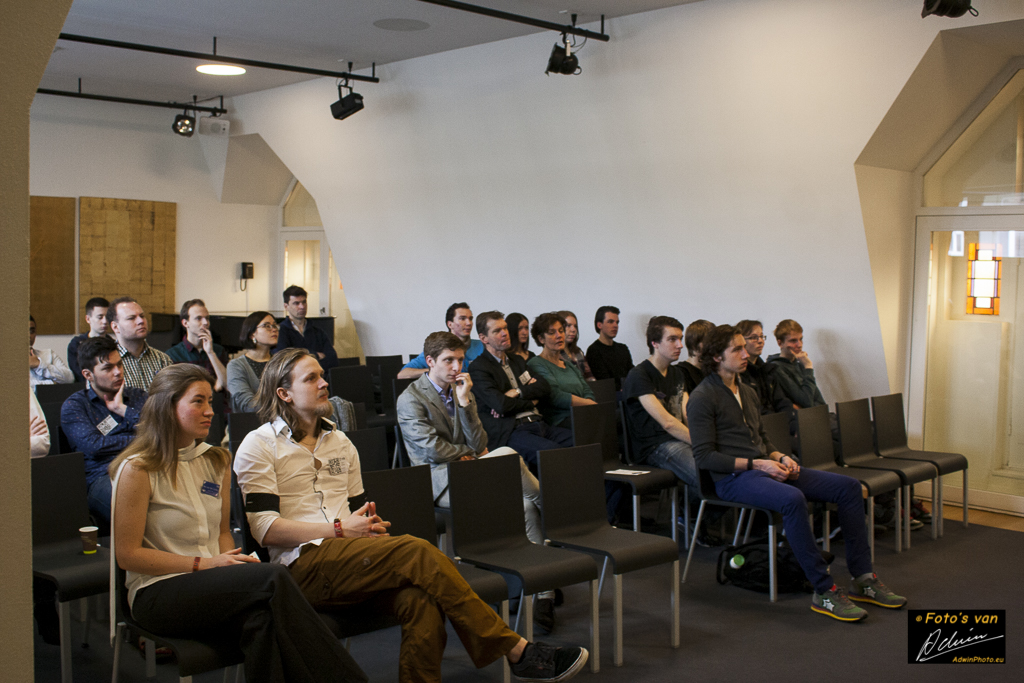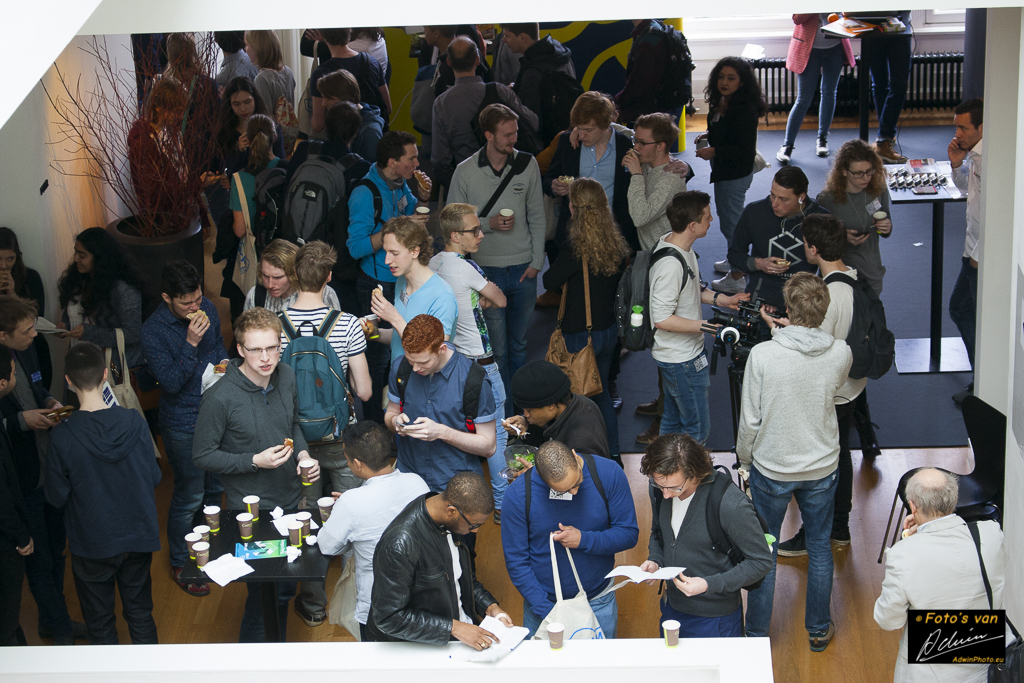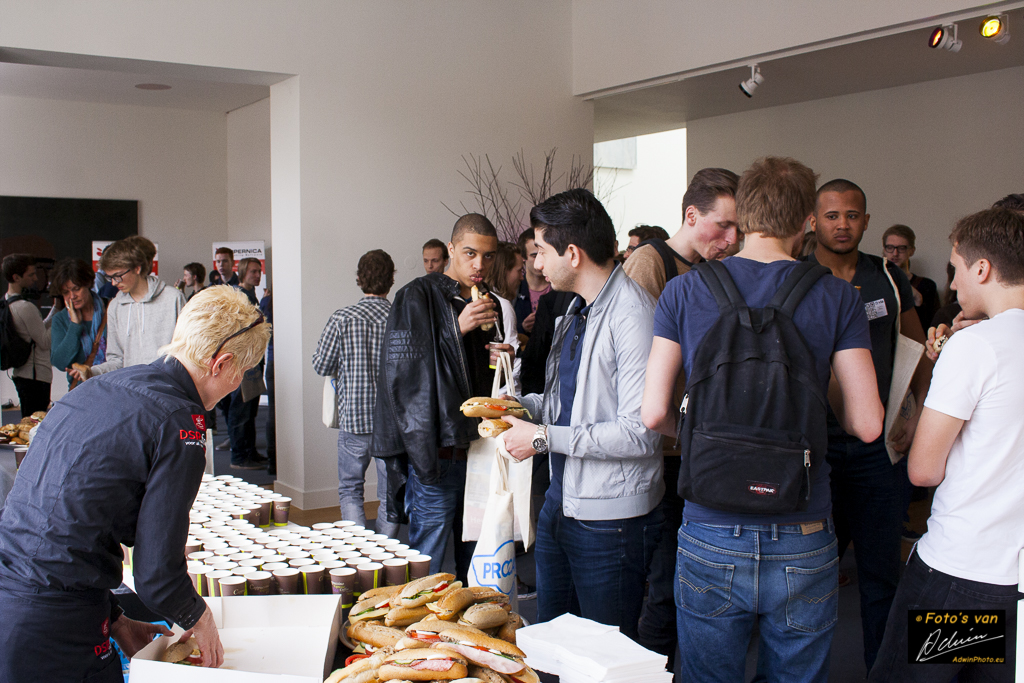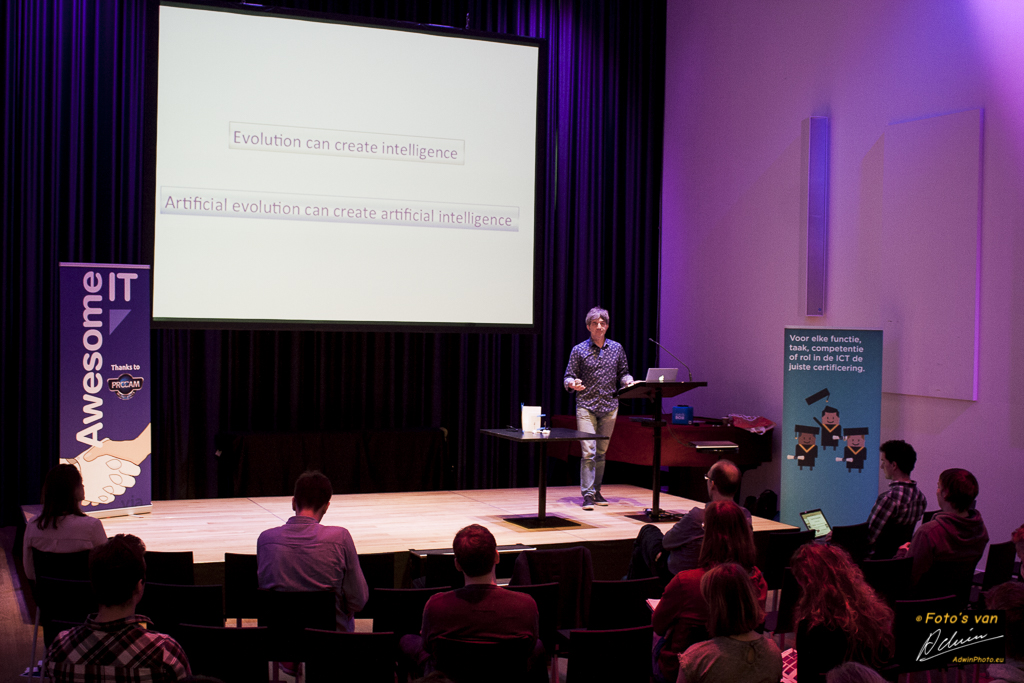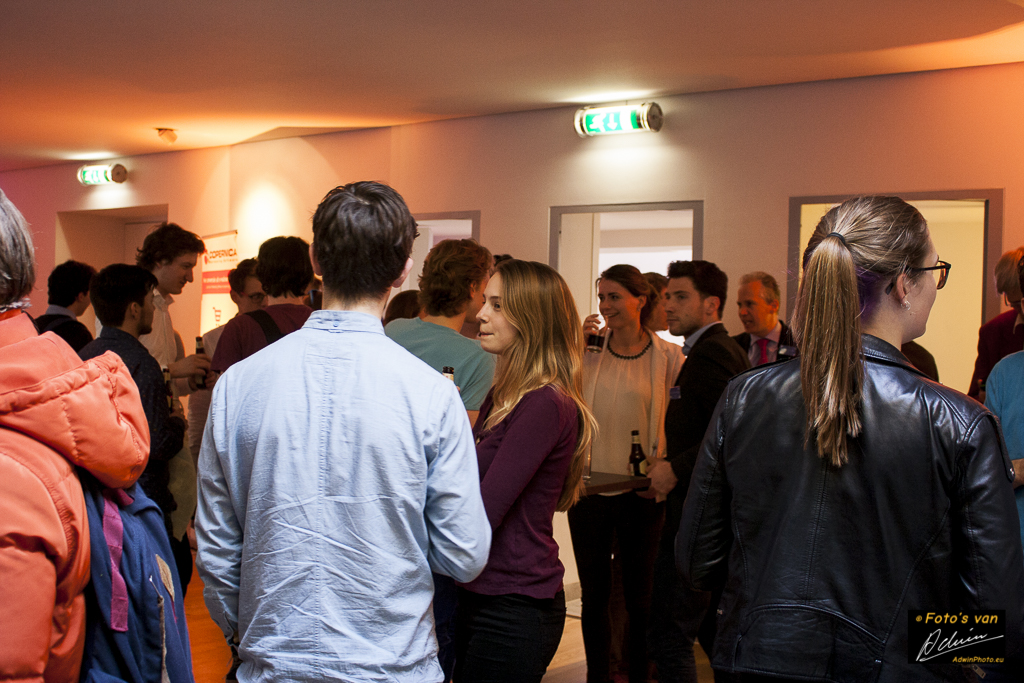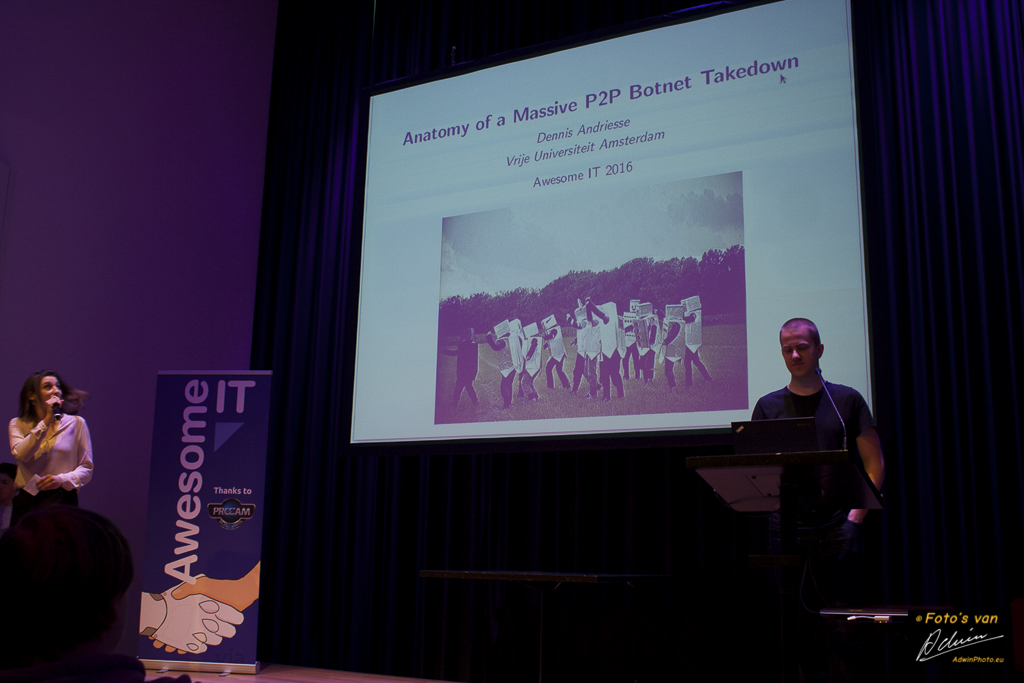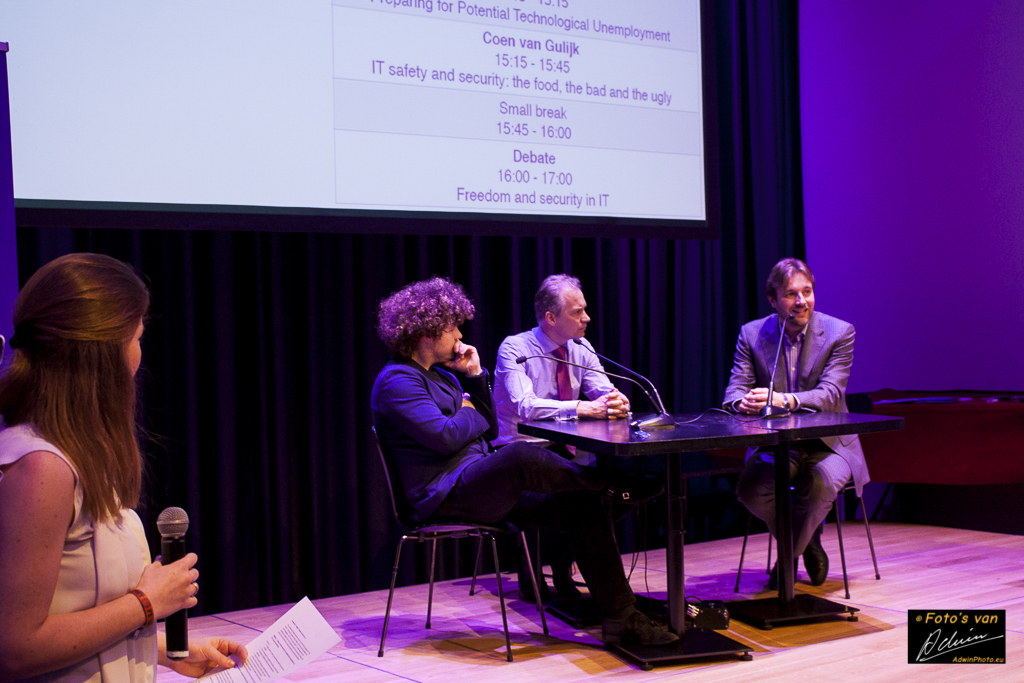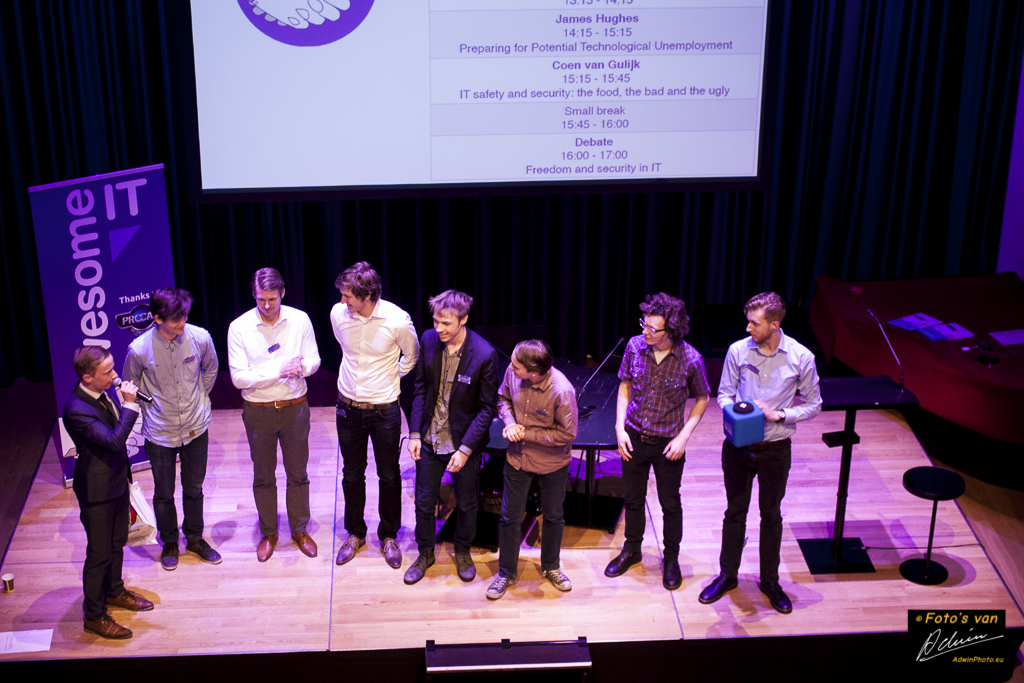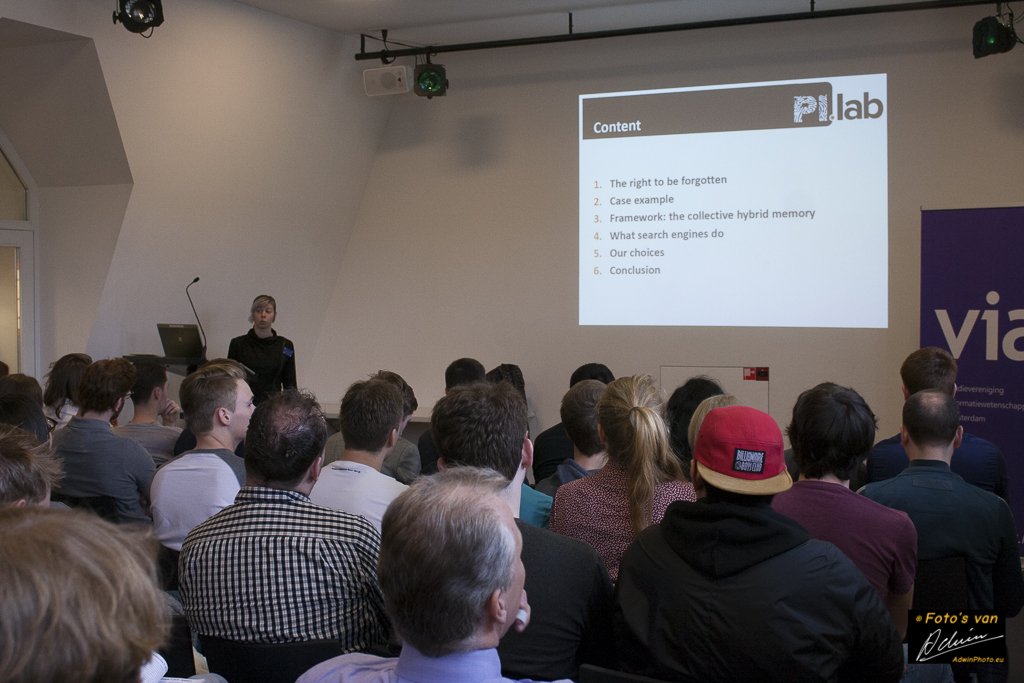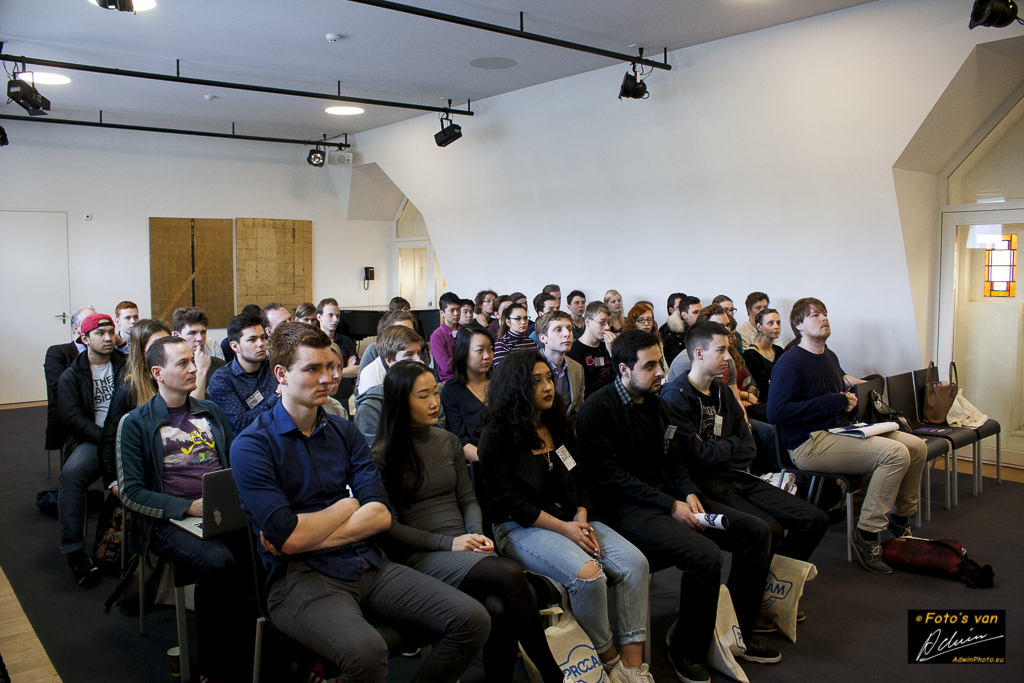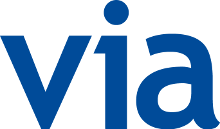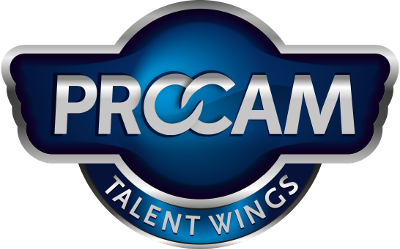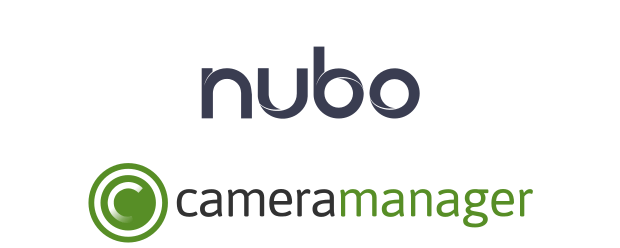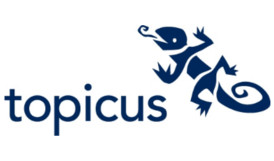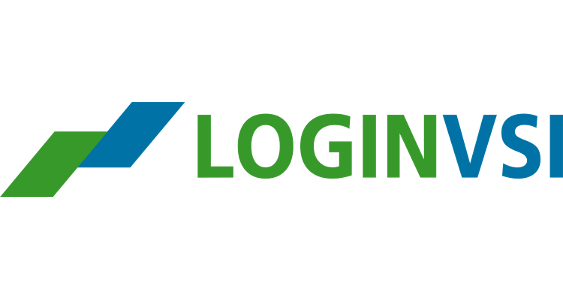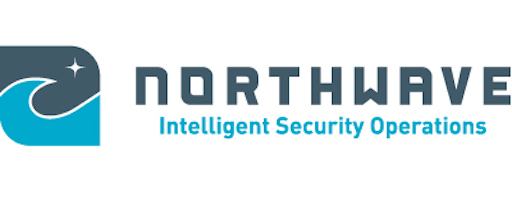
Peculiar Professions
7 April 2017
Hotel Casa, Eerste Ringdijkstraat 4, AmsterdamNew research is one of the driving forces of information science but where does this new research come from? What are the new technologies that may possibly change our future. Dive into the world of peculiar professions and look at some less known techniques and research as well as really understand the better known techniques.
On the 7th of April 2017, the 7th edition of Awesome IT, 'Peculiar Professions', will be held in Amsterdam.
Come join us in getting to know the less known subjects of information science and learn about new things that most of us have never heard about. With a number of topics ranging from quantum cryptography to computational musicology, from helping ALS patients with technology to creating botnets on your phones and much more. We hope you will join us on the 7th of April to learn and discuss these topics and, of course, enjoy our free lunch.
Speakers 2017
Click on a name on the left for more information about a speaker
Sanjay Rawat, PhD
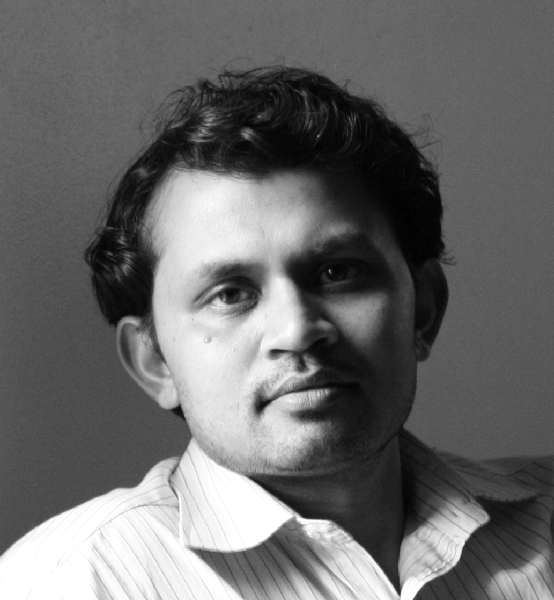
Sanjay Rawat is a Postdoc Researcher in System and Network Security group at VU, Amsterdam, led by Prof. Herbert Bos. He also collaborate with Dr. Cristiano Giuffrida. He obtained a Phd in information security with specialization in intrusion detection system in 2005. Since then, he has taken research positions at various national and international organizations- Intoto (now FreeScale), India; Trento Uni, Italy; Verimag, Grenoble, France. He has published in top security venues, like NDSS, S&P, ESORICS etc. His main interests include Static & Dynamic Security Program Analysis, Intelligent fuzzing using evolutionary algorithms, Vulnerability analysis, Intrusion detection/prevention systems, Machine learning and data mining in security.
Talk: Fuzzing: The Art and Science of Bug Finding
Cyber Security is no longer a term that used to be confined to IT professionals only. On daily basis, we hear news about some cyber attack, resulting in loss of sensitive information and disruption of services. For most of these attacks, the underlying cause remains to be a software bug that is exploited to perform unintended actions (i.e. attacks). Traditionally, software testing is employed to test the software for its functional properties and later on, it was extended to also test for the presence of security bugs. Fuzzing is one of such testing techniques. The simplicity of applying fuzzing has made it the most popular technique. In fact, fuzzing is equally popular among the attackers (hackers) who are more interested in finding "holes" in the application to attack it! In its most simple form, fuzzing involves generating "random" inputs that are fed to the application (often called as SUT- software under test) and the behavior of the application is monitored to observe some unexpected behavior. However, as the applications become more complex, this form of fuzzing also becomes ineffective in finding bugs. As a result, there have been several attempts to make fuzzing "smarter" by applying more "sophisticated techniques". In this talk, we will walk over various types of fuzzing and their capabilities. While doing so, we'll also touch some of the bugs that are exploited mostly by attackers and the way, fuzzing is effective in discovering them. Of course, we'll also talk about limitations of fuzzing!
Michael Kaisers, PhD
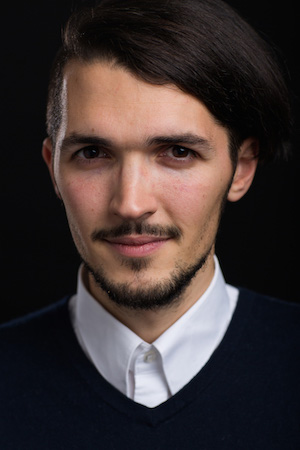
Michael Kaisers graduated from Maastricht University with a BSc in Knowledge Engineering in 2007 and a MSc in Artificial Intelligence in 2008. He earned the honor summa cum laude in both cases, while abbreviating the three-years bachelor's program to two years and complementing his master's program by an extra-curricular four-month research visit to Prof. dr. Simon Parsons at Brooklyn College, City University of New York. In a nationwide competition, the Netherlands Organisation for Scientific Research (NWO) awarded him a TopTalent 2008 grant for his PhD research. In September 2008, he commenced his PhD position at Eindhoven University of Technology. From August 2009, the project continued at Maastricht University. He intensified his international research experience through a three-month research visit to Prof. dr. Michael Littman at Rutgers, State University of New Jersey, and published at various peer-reviewed workshops, conferences and journals. From September 2010 to January 2012 he has chaired PhD Academy, which brings Maastricht PhD candidates together for social, educative and fun activities. He has also chaired the 4th Maastricht PhD conference (PhDC 2011) and the local organizing committee of the 9th European Workshop on Multi-agent Systems (EUMAS 2011). His dissertation coherently summarizes his PhD research and has been defended in December 2012. Michael remains affiliated with Maastricht University as a visiting postdoctoral research fellow. From March to September 2013 he has filled the position of Director of Competence Center Agent Core Technologies in the Distributed Artificial Intelligence Laboratory at the Technical University Berlin. Since November 2013 he is pursuing his research at the Centrum Wiskunde & Informatica in Amsterdam.
Talk: Smart Grids Applications and Autonomous Agents
We have seen a rapid evolution of computing and the internet in our lifetime, including a transition to computers and mobile devices that can act on our behalf and in our interest in real-world applications. The smart electricity grid is one such application that requires efficient algorithms for autonomous decision-making to be realised to its full potential. However, one problem is that users preferences and environment dynamics (how the environment behaves) are not fully known and need to be learned from experience in order to derive strategies e.g. for negotiations. This talk provides a glimpse of the state-of-the-art techniques and current research directions in multi-agent learning and its smart grids applications.
Victor van der Veen, MSc
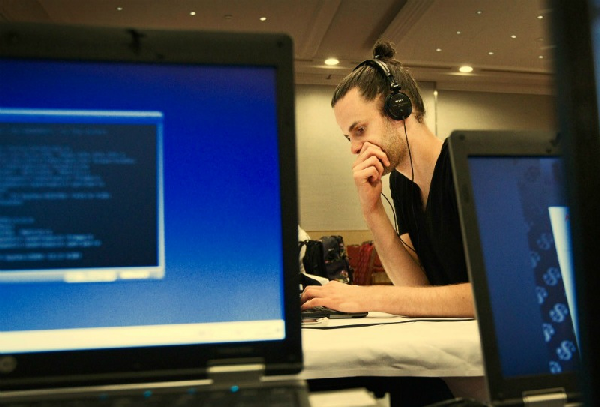
Victor van der Veen is a PhD candidate in the VUSec group at Vrije Universiteit Amsterdam where he also obtained my MSc. degree in Computer Science. His research focuses on malware on smartphones and is part of the Dutch-American Project Arrangement about cooperative research and development on cybersecurity. He is interested in (low-level) system topics that enhance system security, as well as reverse engineering and analyzing malicious code.
Talk: Drammer: Flip Feng Shui Goes Mobile
Rowhammer is a hardware bug that allows attackers to manipulate data in memory without accessing it. More specifically, by reading many times from a specific memory location, somewhere else in memory a bit may flip (a one becomes a zero, or a zero becomes a one). Flip Feng Shui - or FFS - is a technique that allows for reliable exploitation of the Rowhammer vulnerability by combining it with a memory massaging primitive to land sensitive data on a vulnerable location. In this talk, I present Drammer: a new attack that exploits the Rowhammer hardware vulnerability on Android devices. As an instance of the Flip Feng Shui exploitation technique, it is the first Android root exploit that does not rely on any software vulnerability. By discussing the requirements for FFS, I first provide an introduction to reliable Rowhammer exploitation. In the second part of my talk, I show how flipping a single bit is enough for Drammer to get root access on an Android device. Note that this will be a highly technical talk: you will learn about page tables and the buddy allocator. Fun guaranteed!
Dr. Ashley Burgoyne
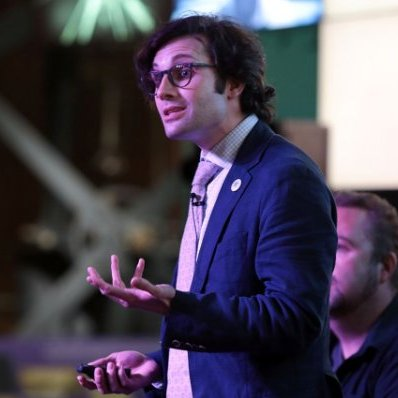
John Ashley Burgoyne is a postdoctoral researcher in the Music Cognition Group at the University of Amsterdam and a guest researcher in Research and Development at the Dutch Institute for Sound and Vision. In 2012, he received his doctorate from McGill University with a thesis entitled ‘Stochastic Processes and Database-Driven Musicology’. He now works on the NWO-CATCH project ‘Cognition-Guided Interoperability Between Collections of Musical Heritage (COGITCH)’, a collaboration among the University of Amsterdam, Utrecht University, the Dutch Institute for Sound and Vision, and the Meertens Institute. He also recently developed a new course at the University of Amsterdam introducing quantitative methodologies to master’s students in musicology. Trained in musicology and in machine learning, Ashley is especially interested in ‘musicometrics’: trying to find statistical models that are conceptually sound and musicologically interpretable as music enters the digital humanities era.
Talk: Hooked on Music: A Citizen-Science Exploration of Musical Catchiness
Is it possible to identify musical features that help cement music in our long-term memory? What is the difference between those songs to which we find ourselves able to sing along even though we last heard them a decade ago and summer hits that we might forget within months? How predictable are these phenomena? It is difficult to investigate these questions in a laboratory environment, and so the Hooked on Music experiment (http://hookedonmusic.org.uk) has sought to study them with citizen science. Framed as a music recognition game, Hooked on Music has been played more than 3 million times by participants from more than 200 countries. This talk will introduce the experiment and the analysis we have conducted on the data to date. The first results, based on an adaptation of the linear ballistic accumulation model for identifying the cognitive processes underlying response times and accuracy rates (Brown & Heathcote, 2008), have allowed us to quantify 'catchiness', or more formally, long-term musical salience. Following from these results, we have applied novel corpus-analysis techniques to identify musical predictors of catchiness. Using both statistical tables and musical examples, the talk will describe the strongest catchiness predictors and discuss how they may relate to other work on earworms and musical memory in general.
Mariska J van Steensel, PhD
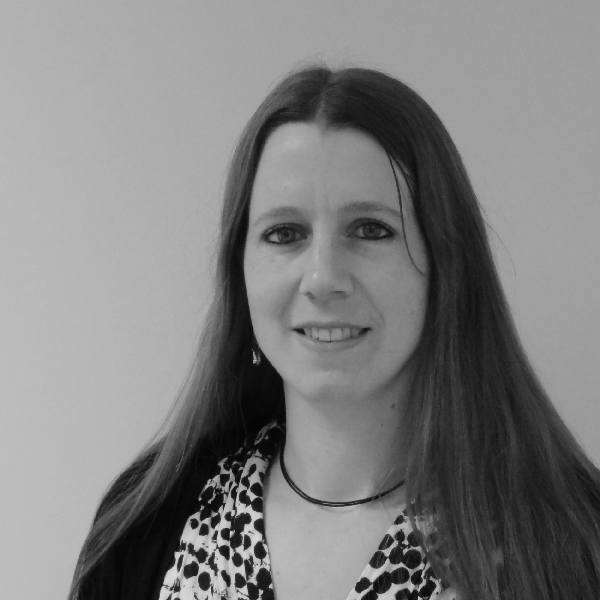
After having performed fundamental research on the basis of circadian rhythmicity in behavior and physiology in the early years of my career, during the last decade, I have pursued to use the wealth of neuroscientific knowledge directly for the benefit of people with disease or disability. The main focus of my research since 2007 has been the development of an implantable Brain-Computer Interface (BCI) for communication in locked-in patients based on electrocorticographic (ECoG) electrodes. Thanks to the efforts of epilepsy patients who received subdural electrode implants for diagnostic purposes, we have been able to address a large range of issues relevant for the implementation of ECoG-based BCI, such as finding the best brain region and function for BCI electrode implantation, and finding a method to presurgically localize this area in a non-invasive way. This work provided the proof of concept for the follow-up pilot study that aimed to implant and investigate the usability of a prototype implantable BCI system in severely paralyzed patients. So far, we have implanted one patient, with highly successful results. My second line of research is the development of efficient strategies of presurgical mapping of brain functions in adult and pediatric epilepsy patients. In patients with intractable epilepsy, surgical resection of the epileptic focus can be a highly effective treatment, provided that the eloquent cortex can be spared and function loss can be prevented. The clinical gold standard for presurgical mapping of essential brain function is electrocortical stimulation, but this tool has several disadvantages. My research focuses on the clinical value and usability of two alternative approaches: fMRI and ECoG frequency mapping.
Talk: Brain-Computer Interface for Communication in late stage ALS
Diseases such as Amyotrophic Lateral Sclerosis, but also events such as a brain stem stroke, can cause a situation called ‘locked-in syndrome’ (LIS). People with LIS are unable to move or speak, but their cognitive capabilities are intact. Brain-computer interfaces (BCIs) have the potential to offer people with LIS a new method to interact with the world by using brain-signals to control computers or other devices. Requirements for daily home-use of BCIs include performance accuracy, as well as ease of use (for the user and caregivers) and esthetic aspects. In October 2015, a woman with late stage ALS was equipped with a fully implantable BCI, consisting of subdural recording electrodes, which were connected, via thin leads, to an implantable amplifier/transmitter device that was placed subcutaneously in the chest area. She was trained in several stages to use the neural signals generated by attempted hand movement to produce brain-clicks that allowed her to make selections in assistive technology software for communication. During training, parameter settings for conversion of the neural signal to the control signal were adapted, in order to maximize performance accuracy (most importantly decrease the number of false positives) and at the same time keeping effort for control at low levels. After several months of training and parameter adaptation, she was able to use the BCI for communication at a slow rate with her family and caregivers, without needing help from the research team. She reported high user satisfaction with the BCI, which indicates that fully implantable BCIs can meet the requirements for daily home use for communication in severe paralysis.
Dr. J.M. Houtkamp & Eline Bijkerk
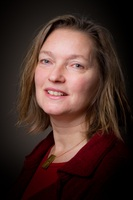
Joske Houtkamp (PhD) is assistant professor at the Department of Information and Computing Sciences, Utrecht University, teaching courses on Human-Computer Interaction and Applied/serious games. She is also researcher in the team Spatial Knowledge Systems, Wageningen Environmental Sciences (Alterra), where she participates in national and international research projects. She works on the development of interactive, innovative, tools to support a range of users (from citizens to policymakers and researchers) in understanding and utilizing the outcomes of research on, for instance, the effects of climate change. She has an interest in the use of gamification techniques to enhance participation and data quality in citizen science projects. Eline Bijkerk is an information and computer science student at Utrecht University, where she specialized in the field of life science and health informatics. With a passion for games and nature, she chose to write her bachelor thesis on a subject where both of these topics come together – gamification and nature monitoring in the Netherlands.
Talk: Gamification and citizen science : how can Pokémon Go benefit nature monitoring in the Netherlands?
In the Netherlands, about 100.000 individuals are involved in nature monitoring, and frequently spend time outdoors recording for instance birds, reptiles, insects or vegetation. Their output is essential for Dutch and European policy making on nature and biodiversity. Most of these participants are volunteers, who use a range of recording techniques from state-of-the-art apps to traditional paper forms. In a recent research project, we focused on two questions: 1. can gamification be used to engage more young people in nature monitoring? 2. can gaming techniques contribute to better data quality by persuading participants for instance to visit specific locations at specific moments in time ? The popularity of Pokémon Go, that requires players to spend time outside and locate species, inspired us to identify game elements that may be used to enhance participation in nature monitoring. We discuss the results of an online survey in which 600 young people disclose their motivations for playing Pokémon Go, and the implications for future gamified application development.
Fabian van den Broek, PhD
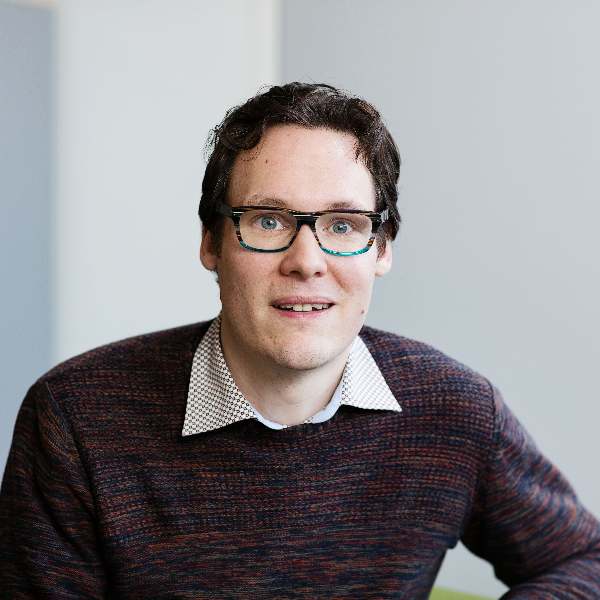
Fabian van den Broek (PhD) is currently working as a Post Doc at the Open University, where his research focusses on attribute-based credentials. He obtained his MSc degree (cum laude) at the Radboud University and stayed there during his PhD. His disertation was on the security of wireless communication technologies such as GSM, GPRS and UMTS. Fabian is very interested in the combination of theoretical and practical questions of security; designing systems in a perfect mathematical model and then keeping them secure, but also usable, in the real world.
Talk: IRMA, as simple as ABC
IRMA (I Reveal My Attributes) is an attribute-based credential system in which users can obtain credentials stating attributes about themselves (e.g. I'm a student, with student-number 1234). These attributes can then be disclosed selectively to verifiers (e.g. I'm a student, xxxxxxxxxxxxxxxxxxxxx), offering a very flexible and potentially privacy-friendly way of authentication. The IRMA technology has been developed at the Radboud University as a proof of concept and is now being maintained and improved by the Privacy by design foundation. This presentation will give an overview of the IRMA technology and show you how to start using it.
Henry Prakken, PhD

Henry Prakken is a lecturer in artificial intelligence at the computer science department at Utrecht University and professor in Legal Informatics and Legal Argumentation at the Law faculty of the University of Groningen. He has master degrees in law (1985) and philosophy (1988) from the University of Groningen. In 1993 he obtained is PhD degree (cum laude) at the Free University Amsterdam with a thesis titled Logical Tools for Modelling Legal Argument. His main research interests concern computational models of argumentation and their application in multi-agent systems, legal reasoning and other areas. Prakken is a past president of the International Association for AI & Law, of the JURIX Foundation for Legal Knowledge-Based Systems and of the steering committee of the COMMA conferences on Computational Models of Argument. He is on the editorial board of several journals, including Artificial Intelligence (currently as an associate editor).
Talk: AI & Law: an overview from an argumentation perspective
In this talk an overview will be given of the field of AI & Law. At first sight, building AI models of legal reasoning would seem to be simple: regulations could simply be represented as logical rules which could then be logically applied to the facts of a case. However, this mechanical view leaves out most of what is important in legal reasoning. To start with, the law has social objectives and social effects, which must be taken into account when applying the law. Moreover, legislators can never fully predict in which circumstances the law has to be applied, so legislation has to be formulated in general and abstract terms, which must be interpreted in concrete cases. In addition, the facts of a case can often not be proved with certainty. Finally, legal cases often involve conflicting interests of opposing parties. For all these reasons, legal reasoning goes beyond straightforward logical rule application but involves appeals to precedent, principle, policy and purpose, and all this from opposing points of view. In other words, law relies not just on deduction but on argument. Accordingly, the overview in this talk will be from an argumentation perspective. First the limitations of rule-based expert system technology (one of the main practical successes of AI & Law) will be discussed. Then the support of legal fact finding with Bayesian techniques will be critically examined. Finally, the use of (big) data in the law will be discussed from an argumentation perspective.
Prof. John-Jules Meyer

Prof. John-Jules Meyer studeerde wiskunde met informatica en digitale signaalverwerking aan de Universiteit van Leiden. Later promoveerde hij aan de Vrije Universiteit Amsterdam op een proefschrift op het gebied van de theoretische informatica. Van 1988 tot 1993 was hij hoogleraar aan de Vrije Universiteit op de bijzondere leerstoel "Logica voor gedistribueerde systemen en kunstmatige intelligentie". Van 1989 tot 1993 was hij tegelijkertijd verbonden aan de Katholieke Universiteit Nijmegen als buitengewoon hoogleraar theoretische informatica. Sinds 1993 is hij (gewoon) hoogleraar bij het departement informatica van de Universiteit Utrecht. Op dit moment is hij hoofd van de groep Intelligente Systemen van het Department of Information and Computing Sciences van de Faculteit Betawetenschappen. Zijn onderzoeksinteresse is de kunstmatige intelligentie en de agenttechnologie i.h.b., en is (co)auteur van meer dan 500 publicaties op het gebied van de (theoretisch) informatica en de kunstmatige intelligentie. Hij is momenteel tevens wetenschappelijk directeur van het Alan Turing Institute Almere dat zich bezig houdt met het toepassen van AI-technieken ten dienste van de gezondheidswetenschappen. In 2005 is hij benoemd tot fellow van de Fellow of the European Association for Artificial Intelligence (EurAI).
Talk: Turing Test, Turings Tango & verwante filosofische vragen m.b.t. de kunstmatige intelligentie
In deze lezing zal ik ingaan op bekende filosofische vragen m.b.t. de kunstmatige intelligentie. Zo bespreek ik de Turing test die Alan Turing voorstelde om te zien of een AI intelligent is, het gedachte-experiment van Searle waarmee hij meende aan te kunnen tonen dat intelligentie niet is te bereiken met (huidige) computers, en het idee van de technologische singulariteit dat juist zegt dat op een gegeven moment de intelligentie van computers en robots die van de mens ver gaat overstijgen (‘superintelligentie’). Ook bespreek ik het door Bennie Mols gepropageerde idee van Turings Tango als vervanger van de Turing Test.
Saurabh Datta, MSc
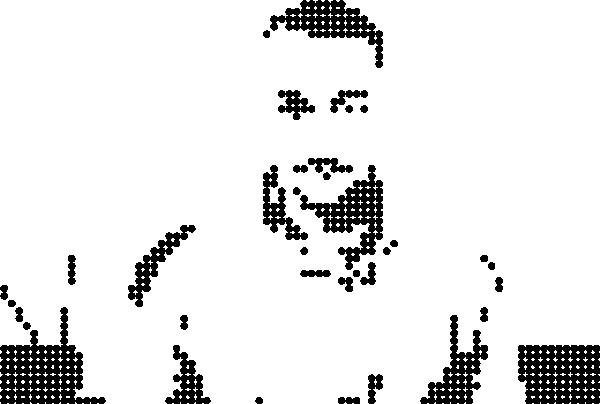
Saurabh Datta is an Interaction designer and design technologist working for Frog Design by day and a creative technologist, critical media artist by night working for automato.farm. He had done his structural engineering and robotics from India and then his Masters in Interaction Design from Copenhagen. His interests shifts between traditional Human Computer interaction modalities and philosophies, Glitch and disturbance studies, Critical arts and engineering, physicality, and ethics of technology. A large part of his work involves design process, scientific analysis sometimes and a philosophical stance but his articulations are not so often a closed product ended scenario. Rather they are a bit of reflection in process and act as models for abstraction, inspiration and resourcing. That way sometimes they are often perceived as artistic in nature. He tries not to be caught up in the usual trends or the definition of his subjects but constantly pursue for what might be plausible.
Talk: The motto is to stay critical
Technology, specifically in the technology domain have been, in the past, constrained to people who can afford it and the knowledge when became as sublime as today, even then, the possibilities are either unknown or have been called niche. Days where people use technology with such abstractions, without understanding or questioning the very nature and contemporary of it. Days where people still know how their postal system works, yet don't use them anymore, and their e-mailing system is parts of their lives, yet very few know how it works. Under those circumstances, a basic vocabulary of technocratic understanding is mandatory. The cybernetic history and the age of internet birth were crucial times where scientists became artists and hippies became hackers. Such radical blend is not new but has been there since the inception of computers, yet it is very much unknown to the traditional practitioners. How this niche group of people have evolved with technology and what are the diversities present out there. How creative technologists and artist/hackers and certificate- computer uneducated have shaped the niche, yet astounding, plethora of possibilities. It would be a talk about the history of arts in technology/computer science and how practitioners of such have created multi-disciplinary explorations and inventions. Stressing on the very necessity these days to see a larger abstracted view and go beyond a daily Information technology guy.
Prof. Sandjai Bhulai

Sandjai Bhulai is hoogleraar Business Analytics aan de Vrije Universiteit Amsterdam. Hij heeft “Wiskunde” en “Bedrijfswiskunde en Informatica” gestudeerd, en heeft een PhD in mathematische besliskunde. Hij is medeoprichter van het Amsterdam Center for Business Analytics (ACBA), en mede-oprichter van het post-graduate programma Business Analytics & Data Science. Sandjai’s onderzoek bevindt zich op het grensvlak van wiskunde, informatica, en operations management. Zijn specialisatie is in besluitvorming onder onzekerheid, data science, en business analytics. Zijn lopende projecten focussen zich op HR analytics, social media analytics, dynamisch prijzen, en planning en roosteren in complexe systemen.
Talk: Business Analytics - an era of change or change of an era?
We find ourselves in the midst of a surge in the use of data and business analytics. Some estimates put the total amount of data generated each day at 2.5 quintillion bytes! As a result, significant changes are happening — some are obvious while others are below the surface. We are only just starting to see how revolutionary data and analytics can be, and as it truly takes off, we can expect even more changes on the horizon. In this talk, we will explore how data is changing the business landscape, creates new business opportunities, and also changes the professions.
Prof. Ana Varbanescu
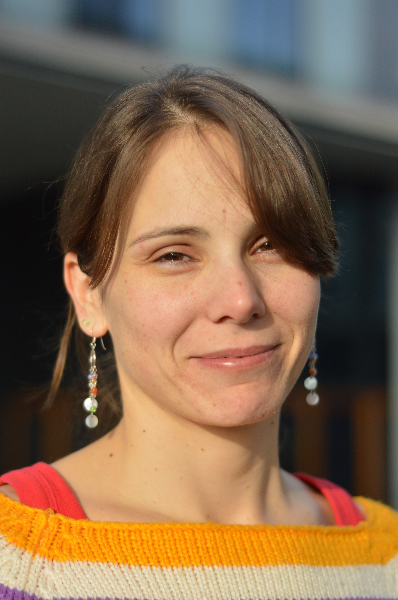
Ana Lucia Varbanescu is Assistant Professor in the System and Network Engineering group at the University of Amsterdam. She obtained her BSc and MSc from POLITEHNICA University of Bucharest, Romania. In 2010 she received her PhD from Delft University of Technology. She continued as a PostDoc researcher at VU University Amsterdam and the Delft University of Technology, positions partially funded by an NWO IsFast grant. In 2012, she received an STW VENI grant. Since 2013, she is a MacGillavry fellow at University of Amsterdam. From 2007 till 2014, she was a visiting researcher at IBM T.J.Watson (USA), NVIDIA (USA), BSC (Spain), and Imperial College of London (UK). Her research interests include high-performance computing, parallel programming, performance analysis and prediction, and big data analytics.
Talk: Performance Engineering in the Many-core Era
Computing systems are everywhere around us: we use laptops, smartphones, and tablets in our day-to-day life, we use servers and computing services on the Internet, we use "lab computers" for research simulations, and so on. The performance and efficiency of these systems have an important impact on our life as users, but also on the cost and/or energy consumption of the systems themselves. Performance engineers are the specialists who focus on improving the performance and efficiency of such systems. In this talk, I will describe in more detail the performance engineering process, with its complexity and its challenges. I will further present three interesting success stories, from three different domains, to demonstrate how diverse, complex, and exciting performance engineering is.
Dr. Paul Vogt
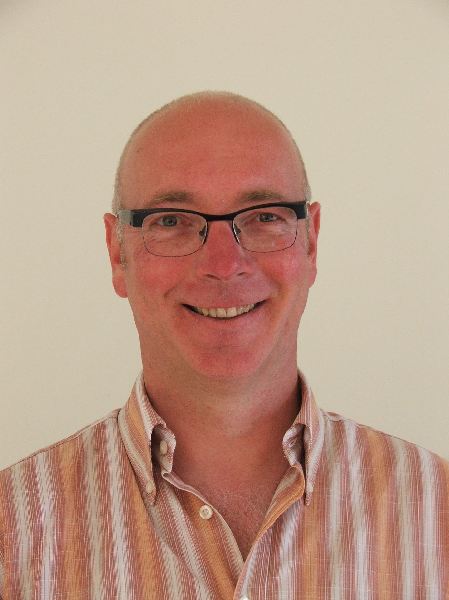
Dr. Paul Vogt is Associate Professor at the Tilburg center for Cognition and Communication at Tilburg University in the Netherlands. He received an MSc in Cognitive Science and Engineering from the University of Groningen (Netherlands), and obtained a PhD at the Artificial Intelligence Laboratory of the Vrije Universiteit Brussel (Belgium). His research focuses on understanding the cultural, social and cognitive mechanisms that underly the evolution and acquisition of language and communication. Paul is particularly interested in investigating how humans (and machines) can ground the meaning of linguistic utterances in the real world, and how they learn language from each other through social interactions. To study this, he has used a variety of techniques, ranging from agent-based modelling, child-robot interaction and psycholinguistic experiments to ethnographic research of children's language acquisition in different cultures. Paul has recently become a PI the L2TOR project, a scientific research project concerned with second language tutoring using social robots.
Talk: Learning a second language from a social robot
Social robots are increasingly becoming part of society. One application domain is education. The L2TOR project is a European funded project to investigate how autonomous social robots can used as second language tutor for preschool children (http://www.l2tor.eu). Question is how can we build such an autonomous robot with the present state-of-the-art in such a way that the child-robot interactions are pleasant (to allow the building of long-term relations), challenging (to motivate them to learn new skills) and pedagogically sound (to ensure that children can learn from the robot)? In this talk, I will present the approach taken in the L2TOR project, illustrated with a few case studies, and discuss some challenges that needs to be addressed.
Gerrit Oomens, MSc
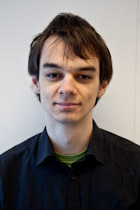
Gerrit Oomens graduated from the University of Amsterdam in 2012 with an MSc in Mathematics. He is now employed at the Education Service Center of the Faculty of Science, where he works to subvert the administrative systems used by the university. During his studies, he developed the FNWI-specific DataNose system, which has grown into a (too) large system that is used for a broad variety of processes within the faculty.
Talk: DataNose behind the scenes
The University of Amsterdam is a large organisation that makes use of an impressive and ever growing number of information systems. Some of these are visible to most students and teachers, such as SIS and Blackboard; others are hidden to most users. In this talk, a behind the scenes perspective on these systems will be given, focusing in particular on the integration of these systems (or lack thereof) and the development and use of the DataNose system, which attempts to solve various integration-related problems. We will discuss this system’s place in the world of UvA IT and the various advantages and disadvantages of such a decentralised approach.
Prof. Dr. Simon Portegies Zwart
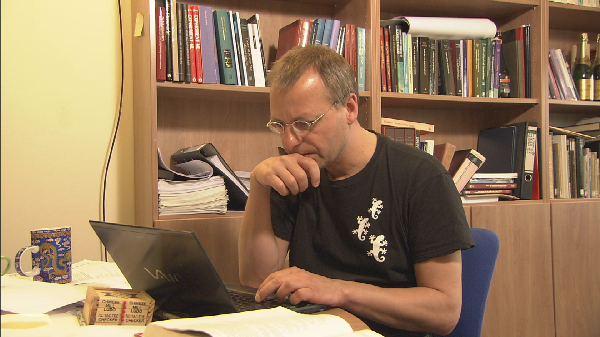
Simon Portegies Zwart promoveerde in 1996 bij Prof. dr. Frank Verbunt op het proefschrift "Interacting Stars". Hierna werkte hij bij de Universiteit van Tokio het Massachusetts Institute of Technology en de Universiteit van Amsterdam voordat hij werd benoemd tot hoogleraar numerieke sterdynamica aan de Sterrewacht Leiden. Simon is getrouwd met Merei, en samen hebben zij drie kinderen: Dagmar, Maura en Nander. In zijn vrije tijd schrijft hij hierogliefen en brouwt hij bier.
Talk: Supercomputer games
The Galaxy is composed of 100 billion stars. One of them is the Sun. So far we only know one star in the Galaxy which is orbited by a planet that harbors life. Could there be more. How can we find out. With the largest simulations ever conducted we can start addressing these questions. But performing such simulations require us to program the largest supercomputers, and that is quite a challenge.
prof.dr.dr.h.c.ir. Rinus Plasmeijer
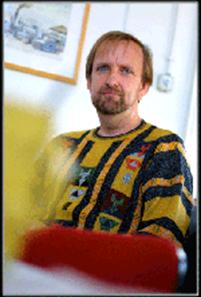
Rinus Plasmeijer started his PhD in Computer Science in 1977 in Nijmegen , and when he graduated in 1981 he helped to start the Computer Science department and studies at this university. He became full professor in Software Technology at the Radboud University Nijmegen in 1995. Plasmeijer is one of the pioneers in the research on Functional Programming and published over 300 papers in this area. He is the chief designer of Clean, a Haskell-like pure functional programming language well known from its special features, such as uniqueness typing, and the excellent code generated by the compiler. In 2008 he became Doctor and Professor Honoris Causa at the Eötvös Loránd University in Hungary. His current interest is Task Oriented Programming, a special flavour of Functional Programming for developing distributed multi-user systems on a very high level of abstraction.
Talk: Task Oriented Programming
In this talk we present a new style of functional programming, called Task Oriented Programming (TOP). TOP is specially designed to support the development of distributed multi-user, multi-platform, web-based applications. Special about TOP is that is allows programmers to focus on the tasks the application has to support, without worrying about the technical details needed for the realization. One specifies, on a very high level of abstraction, the tasks to be performed, their interrelations, who may work on it, as well as the data dependencies between the tasks. From such a specification, a distributed client-server system is generated. Servers coordinate the work thus described. Web-clients and apps are generated with appropriate user interfaces for doing the work. All data communication and synchronization between the parties involved is handled automatically. The iTask system is an implementation of TOP. It offers TOP as an Embedded Domain Specific Language embedded in the pure Haskell-like functional language Clean. From one source code, code for servers, clients, browsers, apps, and the Internet of Things are generated. Application areas we are working on are: Command and Control systems for the Dutch Navy, Search and Rescue support for the Dutch Coast Guard, Home Care Systems, and Tax Office applications.
Dr. Tim Baarslag
Tim Baarslag is a Researcher at the Centrum Wiskunde & Informatica (CWI), the national research institute for Mathematics and Computer Science in the Netherlands. He is a Visiting Assistant Professor at Nagoya University of Technology and Visiting Fellow at the University of Southampton
Talk: Designing intelligent negotiation systems
People negotiate everywhere, from job negotiations to deciding on a holiday destination. By automating these negotiations, computers can help support humans in making trade-offs and make them more manageable and comprehensible. In this talk, I will present my ongoing research on intelligent negotiation systems in a wide variety of upcoming domains, such as the Internet of Things, privacy policies, and smart energy trading. One of the key challenges in designing a successful automated negotiator is that only limited information is available about both the user and other party. Therefore, we need to investigate various decision and learning techniques to determine what questions to ask, what offers to make, and when to accept. I will provide some intuition behind some of the solution concepts (e.g. Pandora's Rule, optimal stopping, the college problem), which have a wide range of potential applications. I will also provide a broad overview of the challenges in automated negotiation, together with a roadmap for the successful design of intelligent negotiation systems.
Andreas Huelsing, PhD
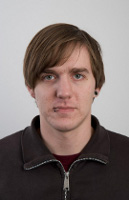
Andreas is a postdoctoral researcher at TU Eindhoven working with Tanja Lange in the PQCRYPTO project. His research focuses on post-quantum cryptography - cryptography secure against quantum computer-aided attacks. Andreas goal is to get post-quantum cryptography into practice. To achieve this goal, he is working with several standardization bodies, including IETF and ETSI, besides his research. Before his current position, Andreas was a postdoctoral researcher in the cryptographic implementations group at TU Eindhoven, working with Daniel J. Bernstein. He did his PhD in the cryptography and computer algebra group at TU Darmstadt under the supervision of Johannes Buchmann. Before starting his PhD, he worked as a research fellow at Fraunhofer SIT in Darmstadt. Andreas holds a Diploma in computer science from TU Darmstadt.
Talk: Security & privacy in a post-quantum world
Privacy is a natural need that is not only important for individuals but also for the evolution of society. This includes online privacy as a lot of social interaction happens over the Internet. In this talk I explain what connects the rather mathematical topic of post-quantum cryptography to the social question of online privacy. Afterwards I will give a brief introduction to post-quantum cryptography and highlight some recent developments in the area.
Program
Minsky room |
Dijkstra room |
Van Rossum room |
|
|---|---|---|---|
| 10:00 |
Central openingMichael Kaisers10:00 - 10:30Smart grids |
||
| 10:15 | |||
| 10:30 |
Tim Baarslag10:30 - 11:00Designing intelligent negotiation systems |
||
| 10:45 | |||
| 11:00 | Short break11:00 - 11:15 |
||
| 11:15 |
Gerrit Oomens11:15 - 12:15Datanose: behind the scenes |
Saurabh Datta11:15 - 11:45Design and technology |
Sandjai Bhulai11:15 - 12:15Business Analytics - an era of change or change of an era? |
| 11:30 | |||
| 11:45 |
Fabian van den Broek11:45 - 12:15IRMA, as simple as ABC |
||
| 12:00 | |||
| 12:15 | Lunch break12:15 - 13:00 |
||
| 12:30 | |||
| 12:45 | |||
| 13:00 |
Victor van Veen13:00 - 14:00Drammer: Flip Feng Shui Goes Mobile |
Andreas Huelsing13:00 - 14:00Post-Quantum Cryptography |
Mariska van Steensel13:00 - 14:00Brain-Computer Interface for Communication in late stage ALS |
| 13:15 | |||
| 13:30 | |||
| 13:45 | |||
| 14:00 |
Rinus Plasmeijer14:00 - 15:00Task Oriented Programming |
Sanjay Rawat14:00 - 15:00Fuzzing: The Art and Science of Bug Finding |
Paul Vogt14:00 - 15:00Learning a second language from a social robot |
| 14:15 | |||
| 14:30 | |||
| 14:45 | |||
| 15:00 | Small break15:00 - 15:15 |
||
| 15:15 |
John-Jules Meyer15:15 - 16:15Turing Test, Turings Tango & verwante filosofische vragen m.b.t. de kunstmatige intelligentie |
Simon Portegies Zwart15:15 - 16:15Supercomputer games |
Joske Houtkamp15:15 - 16:15Gamification and citizen science : how can Pokémon Go benefit nature monitoring in the Netherlands? |
| 15:30 | |||
| 15:45 | |||
| 16:00 | |||
| 16:15 |
Henry Prakken16:15 - 17:15AI & Law: an overview from an argumentation perspective |
Ana Varbanescu16:15 - 17:15Performance Engineering in the Many-core Era |
Ashley Burgoyne16:15 - 17:15Hooked on Music: A Citizen-Science Exploration of Musical Catchiness |
| 16:30 | |||
| 16:45 | |||
| 17:00 | |||
Drinks |
Speeddating
Next to all the exciting speeches, there will be a chance to be heard and see what the future has in stake for you. In just 30 minutes of your time, you will get to “date” with several interesting companies, and talk about what you can do for them and what they can do for you. Even if you do not know yet what you want or simply want to get some more information about the companies, it's well worth your time. So don't forget to register for speeddating and get the full hormonal experience of Awesome IT!
Partners that will be speeddating are: Procam, Login VSI, Copernica, and Topicus.
